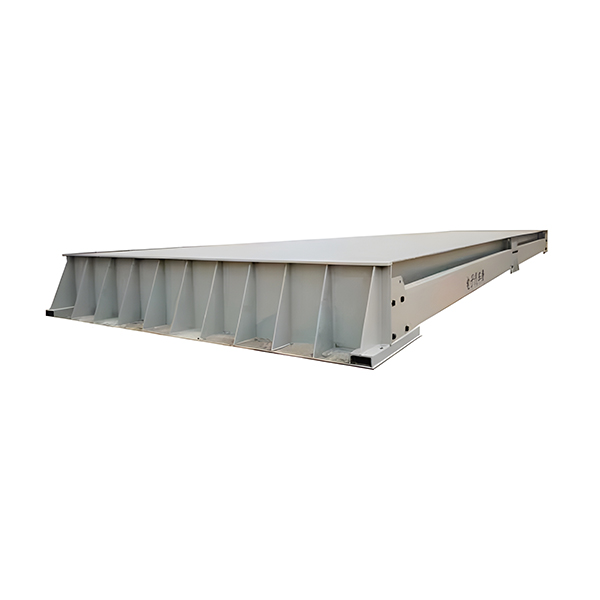Web Menu
Product Search
Exit Menu
Does the weighing data of the truck scale need to be backed up in time?
The weighing data of the truck scale needs to be backed up in a timely manner. This is a key link in ensuring business continuity, data security, and management effectiveness. The reasons are as follows:
Preventing the risk of data loss:
The working environment of a truck scale is complex (dusty, humid, vibrating, electromagnetic interference), and there is a possibility of sudden malfunctions (such as hard disk damage, motherboard failure), unexpected power outages, or system crashes in its instruments, computers, or storage devices.
Without timely backup, in the event of hardware failure or software error, recent or even all historical weighing data may be permanently lost in an instant, resulting in irreparable consequences.
Ensure the continuous operation of business:
Weighing data is the direct basis for core business activities such as logistics scheduling, production batching, inventory management, and financial settlement.
If business interruption occurs due to data loss (such as inability to verify the weight of goods, inability to generate settlement statements, production process stagnation), it will cause operational chaos, a sharp decline in efficiency, and economic losses. Timely backup ensures rapid data recovery in the event of device failure, minimizing business interruption time to the greatest extent possible.
Maintain the integrity of the transaction evidence chain:
For trade settlement, legal disputes, internal auditing, or quality traceability, every weighing record is an important original voucher.
A complete, authentic, and tamper proof data chain is the key evidence for safeguarding corporate interests and clarifying responsibilities. Timely backup to prevent data loss or accidental coverage that damages the integrity of the evidence chain, ensuring its legal effectiveness.
Dealing with human error or malicious behavior:
The operator may cause data loss due to misoperation, such as accidentally deleting or overwriting files.
There is also a risk of internal personnel intentionally deleting or tampering with data to cover up errors or fraud.
Automated and timely backups with strict permission management (especially off-site or non erasable backups) are the most effective defense against such risks, providing original data copies for verification and recovery.
Meet compliance and audit requirements:
Many industry regulations (such as metrology laws, food safety laws, quality management system standards ISO, etc.) and customer contracts require companies to properly maintain key business records (including weighing data) for a certain period of time.
Timely and reliable data backup is a necessary condition for meeting these archive period regulations, smoothly passing external audits or inspections, and avoiding penalties or reputational damage caused by non-compliance.
Support data analysis and decision-making:
Historical weighing data is an important foundation for analyzing transportation efficiency, material consumption, supplier performance, equipment utilization, and other factors.
Data loss means that the analysis basis is missing or interrupted, affecting the accuracy of management decisions and long-term planning. Timely backup ensures the integrity and continuity of historical data, providing support for valuable analysis.
Reduce the impact of catastrophic events:
Extreme events such as fires, floods, and theft may damage local devices that store data.
Storing backup data in physically separated locations (remote backup) is an important component of disaster recovery plans, ensuring the recovery of critical business data even in the event of a major accident.
| Requirement for Timely Data Backup | Critical Risks Mitigated & Benefits Secured |
| Prevent Permanent Data Loss | • Guard against hardware/software failures, power outages, or environmental damage erasing records.• Ensure no irreversible gaps in historical data. |
| Maintain Business Continuity | • Enable rapid data restoration after system failures to avoid operational paralysis.• Prevent disruptions to logistics, production, or billing workflows. |
| Preserve Legal & Audit Trails | • Retain immutable evidence for trade disputes, compliance audits, or investigations.• Secure chain-of-custody integrity for critical transactions. |
| Counteract Human Risks | • Recover data lost to accidental deletion or overwriting.• Deter/detect deliberate tampering or fraud by retaining original copies. |
| Meet Regulatory Obligations | • Fulfill mandatory data retention periods required by metrology, quality (e.g., ISO), or industry standards.• Pass external audits with verifiable record-keeping practices. |
| Support Historical Analysis | • Safeguard complete datasets for trend analysis, efficiency tracking, and strategic decisions.• Ensure long-term data consistency for benchmarking. |
| Enable Disaster Recovery | • Protect against site-specific catastrophes (fire, flood, theft) via off-site/cloud backups.• Guarantee business resilience with redundant data storage. |
-
Add: Building 3, No. 355, Xiangshan East Road, Binhai Economic Development Zone, Cixi City, Ningbo, Zhejiang, China.
-
Tel: +86-18969402526
-
Phone: +86-0574-86817102
-
E-mail: [email protected]

 English
English 中文简体
中文简体





